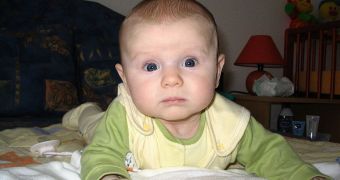Studies conducted for more than 20 years have revealed that, even at a very young age, children know some of the most basic aspects of the physical world. In a new research, experts discover how infants devise their own, sophisticated expectations based on unfolding situations.
One of the things that the young ones learn when they are just a few months old is that the physical world is rather fixed, in the sense that objects cannot magically teleport from one location to the other, and that they cannot appear or disappear at will.
But, while this has been known for at least two decades, experts had no idea that something else is going on in the young ones' minds until recently. The research team behind the new work showed that infants create their own expectations about how situations will progress.
In order to do that, the kids use the data they have already learned, such as mentioned above, says expert Josh Tenenbaum, a co-leader of the study team. He and his colleagues are based at the Massachusetts Institute of Technology (MIT), in Cambridge.
But the group did not stop here. Experts even managed to create a computational model of the infant mind, which is able to predict with a high degree of certainty how the young ones will react to a new event, or to an event that is not in tune with the way they perceive the natural world.
“Real intelligence is about finding yourself in situations that you’ve never been in before but that have some abstract principles in common with your experience, and using that abstract knowledge to reason productively in the new situation,” the expert says.
Tenenbaum also holds an appointment as an associate professor of cognitive science and computation at MIT. Details of the new study appear in the May 27 issue of the top journal Science.
“We don’t yet have a unified theory of how cognition works, but we’re starting to make progress on describing core aspects of cognition that previously were only described intuitively. Now we’re describing them mathematically,” the investigator goes on to say.
As such, it would appear that the development of human cognitive skills is both flexible and highly rapid, adds Harvard University psychology professor Elizabeth Spelke.
“Until now, no theory has appeared to have the right properties to account for both features, because core knowledge systems tend to be limited and inflexible, whereas systems designed to learn almost anything tend to learn slowly,” the expert argues.
“The research described in this article is the first, I believe, to suggest how human infants' learning could be both fast and flexible,” she concludes.

 14 DAY TRIAL //
14 DAY TRIAL //